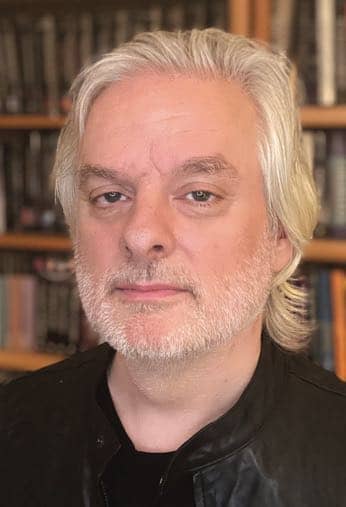
In his new book, Reality+, David Chalmers leaves the well-trampled garden of human consciousness and travels in a new direction, taking readers on a techno philosophy adventure tour of computer-simulated worlds and virtual reality. He has penned a philosophical page-turner that cascades from Aristotle to Zhuangzi, from Plato’s Cave to Robert Nozick’s Experience Machine, while wrestling with the big questions of knowledge, reality and mind. Discussions of epistemology and metaphysics are as likely to reference the Netflix drama Black Mirror, as the ideas of Daniel Dennett. The Matrix receives more attention than the works of Kant. Sci-fi classics like Snow Crash and Speak Player One stand shoulder to shoulder with Descartes’ Meditations on First Philosophy and Putnam’s History, Truth and Reason. Scores of humorous philosophical illustrations drawn by Tim Peacock help to push the argument forward. Chalmers is arguing that we should take seriously the likelihood that we are simulated beings living in a simulated universe. Our creator could be a teenage hacker one universe up from ours, although it seems more likely that some form of AI-generated our simulated universe. The fact that we are conscious beings does not negate the idea that we are sims, since consciousness is substrate independent, emerging from the organisation of a complex system, whether biologically- or silicon-based. Chalmers reveals himself to be a virtual realist, arguing that the ‘entities in virtual reality are real’ (p.105) – they are digital objects, made of information or bits. He concludes that we should not be afraid of migrating into a virtual world, as we can live genuine, fulfilling lives there. In October 2021 I met with him for a virtual (of course!) talk.
Esta historia es de la edición February/March 2022 de Philosophy Now.
Comience su prueba gratuita de Magzter GOLD de 7 días para acceder a miles de historias premium seleccionadas y a más de 9,000 revistas y periódicos.
Ya eres suscriptor ? Conectar
Esta historia es de la edición February/March 2022 de Philosophy Now.
Comience su prueba gratuita de Magzter GOLD de 7 días para acceder a miles de historias premium seleccionadas y a más de 9,000 revistas y periódicos.
Ya eres suscriptor? Conectar

Metaphors & Creativity
Ignacio Gonzalez-Martinez has a flash of inspiration about the role metaphors play in creative thought.

Medieval Islam & the Nature of God
Musa Mumtaz meditates on two maverick medieval Muslim metaphysicians.

Robert Stern
talks with AmirAli Maleki about philosophy in general, and Kant and Hegel in particular.

Volney (1757-1820)
John P. Irish travels the path of a revolutionary mind.

IT'S A WONDERFUL LIFE
Becky Lee Meadows considers questions of guilt, innocence, and despair in this classic Christmas movie.

"I refute it thus"
Raymond Tallis kicks immaterialism into touch.

Cave Girl Principles
Larry Chan takes us back to the dawn of thought.

A God of Limited Power
Philip Goff grasps hold of the problem of evil and comes up with a novel solution.

A Critique of Pure Atheism
Andrew Likoudis questions the basis of some popular atheist arguments.

Exploring Atheism
Amrit Pathak gives us a run-down of the foundations of modern atheism.